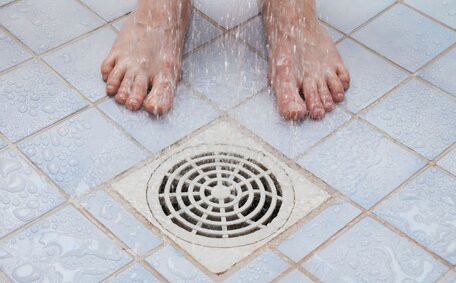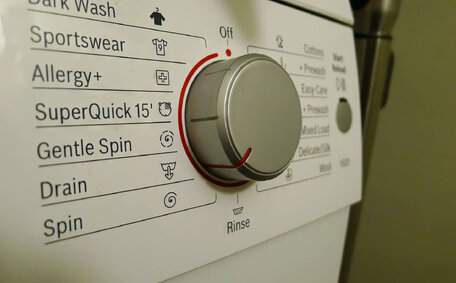
Baking Soda & Vinegar for Cleaning
Using baking soda & vinegar separately for cleaning is very effective; but mixing them dilutes their cleaning power. Learn how to use them properly.
Read MoreKey signs indicating issues with your gas fittings warrant immediate attention from a licensed professional:
Loud hissing, whistling, or roaring from a new gas appliance like a stove or water unit may signal issues like blocked jets or faulty regulators.
If you smell rotten eggs near a hot water unit, a very distinctive scent added to natural gas, or commonly described as a 'rotten eggs’ smell, act quickly. If you detect this odour, it could indicate a gas leak; evacuate the area immediately and contact emergency services.
Gas leaks in your gas plumbing lines can cause plants and grass nearby to brown, wilt or die off. Should you notice gas odours or unexpected patches of dead plants, seek assistance from professional gas fitters for an underground gas supply line inspection.
A sudden spike in gas bills without any change in usage habits or appliances could indicate a leak; consult a licensed gas fitter. Get in touch and we’ll come out with a licenced gas fitter to find and repair problems with gas pipes before they escalate or become hazardous.
Taking swift action with professional services upon noticing any signs of gas issues is critical to prevent disasters. Our team was very professional and committed, with fully certified gas fitters prepared to diagnose, identify, and resolve any gas line problems.
To mitigate risks like fire, explosion, or carbon monoxide poisoning, promptly turn off your appliances and gas supply. Even minor gas leaks can result in dangerous gas accumulation over time, reinforcing the need for a licensed gas fitter.
A simple soap test can help verify your gas line’s integrity: apply soapy water and watch for bubbles as a sign of leaks. If you see bubbles, there is a leak. Turn off gas at the main valve straight away and summon a plumbing service to fix gas issues and clear the vicinity until rectifications are done.
Headaches, dizziness, nausea, and fatigue are common symptoms if exposed, showing signs of gas leak. If anyone exhibits these symptoms, seek fresh air and medical attention immediately. You should be informed about gas hazards; stay aware of the signs and respond quickly as leaks can worsen rapidly.
Should you suspect a gas line problem and need inspections or repairs of your gas piping or plumbing, our licenced team is ready to follow all safety procedures. As experienced gas plumbers, we guarantee prompt service to resolve any gas-related challenges.
Gas lines may become blocked due to various causes such as debris, rust, incorrect installations, ground movement, or wear and tear. This prevents proper gas flow to your appliances. Signs gas leaks include a pilot light repeatedly going out:
Obstructions within a new hot water system could unsettle your need for gas plumbing, presenting formidable dangers. Gas leaks pose a risk of ignition or explosion and must be addressed with urgency. Attempting to DIY clears risks further damage, gas leaks and safety issues.
Maintaining a gas hot water system and ensuring a clean water supply necessitates a licensed professional. Our local gas company uses specialised equipment for repair installation to safely clear blockages without leaks or ignition risks, ensuring your water heater operates efficiently. We’ll thoroughly examine pipes and components to prevent future problems with your system.
Act promptly to mitigate risks: timely repairs on blocked gas lines can prevent fires or explosions, ensuring safety. Call gas fitting services immediately through our 24/7 emergency contact anytime.
Signs of a faulty gas meter may involve appliances failing to light or turn on, suggesting issue at the meter.
Should you encounter malfunctioning gas valves, call repair technician experts immediately as they pose extreme fire and explosion risks. Defective valves can lead to gas leakage or accumulation, with a risk of ignition. When you can smell gas, it’s crucial to get in touch with a licensed technician without delay to exchange defective valves.
Our certified experts can thoroughly inspect the gas valves on all your household appliances. We follow all required safety procedures and use high quality equipment to repair gas valves efficiently.
For assistance with any gas line issues like a rotten egg scent or bubbling during soap tests, immediately contact a licensed gas fitter. Blocked gas plumbing lines also demand urgent attention to prevent hazardous gas build-up.
Faulty regulators, damaged gas conduits, and malfunctioning appliances necessitate the intervention of an experienced repair technician. Attempting to DIY gas fitting repairs risks serious consequences.
Regular inspections by our professional gas fitting team are essential to detect leaks early and ensure component efficiency. Annual check-ups are recommended.
Reach out 24/7 by calling 1300 349 338 or via email at [email protected]
To address problems with LPG and LP gas installations, our fitters use a range of diagnostic techniques:
Once the source of the problem is identified, gas fitters carry out the necessary repairs gas systems require, and when they do, they restore parts to proper function safely. This may involve:
Professional installations require extensive training to avert gas line issues and ensure compliance with safety regulations. Our team handles all diagnostics and repairs to the highest industry standards.
An annual service by a licensed technician to check your gas fittings, appliances, and flues for leaks or damage is crucial. This preventative maintenance helps avoid dangerous problems before they occur.
Ensure your stove and any gas appliances in living spaces are well-ventilated to forestall perilous accumulations. To ensure safety, open windows, operate exhaust fans, and adhere to manufacturer instructions.
Stay alert for potential gas leak indicators such as the distinctive rotten egg odour, erratic appliance performance, dead vegetation near pipelines, or rising gas bills. If you suspect a leak, evacuate immediately and call the fire brigade.
When moving or storing gas cylinders, make sure they are upright, chained down, away from ignition sources, and valves are closed. Gas leaks from tipped or damaged cylinders present a severe safety hazard.
Adhering to fundamental gas safety tips can significantly lower the risks associated with gas fitting installations and repairs. Contact our team any time you have concerns about gas systems or appliances in your home.
It’s important to periodically inspect the physical condition of your gas appliances. Look for:
When appliances are running, monitor for any problem your gas systems may present:
Verify proper operation of valves, regulators, leak detection systems, ventilation, exhaust flues, and emergency shut down procedures, etc. Consult manuals if unsure.
Document any irregular issues detected and contact a licenced professional if repairs are needed. Stay safe by routinely inspecting appliances.
Having your gas systems inspected and serviced at least once a year by qualified technicians is vital for safety and efficiency. They will:
In between professional servicing, you should also do periodic maintenance checks:
Staying on top of gas system maintenance:
Don’t delay, call our gas services experts anytime to book your next inspection or maintenance appointment.
Understanding that the plumbing services we offer, such as gas leak repairs and gas appliance installations, require proper licensing and training to be undertaken legally, as unqualified attempts are hazardous and prohibited. Even small mistakes can lead to gas leaks, explosions, carbon monoxide poisoning, fires and loss of life.
Gas systems consist of intricate components operating under high pressure and pose serious hazards without proper handling. Without the necessary skills, DIY attempts can lead to perilous situations, inflicting harm to machines, regulators, or conduits, and courting disastrous gas outflows. They also void insurance and face heavy fines or jail time for unlicensed work violating safety regulations.
For your safety and legal compliance, gas fitting tasks and repairs must be executed by trained and certified technicians proficient in gas systems. It’s important for our licensed team to adhere to all mandated protocols to safely and correctly rectify any gas complications in your domicile.
Refrain from undertaking DIY gas work; even small mistakes can cause severe damage or fatalities. Contact our 24/7 emergency gas fitting service for assistance.
Using baking soda & vinegar separately for cleaning is very effective; but mixing them dilutes their cleaning power. Learn how to use them properly.
Read MoreBlocked drains are usually caused by buildup of hair, grease, debris and more in your pipes. Fix the problem with professional drain unblocking services to get your drains flowing freely again. Contact us for affordable drain unblocking.
Read MoreWhen you suspect a gas leak or damaged gas line, contact a licensed gas fitter immediately to locate and repair it. A gas line repair involves sealing leaks, replacing corroded or damaged pipes and testing all connections for safety before restoring gas supply.
Read MoreLilyfield, 2040 NSW
We will call back as soon as possible.




